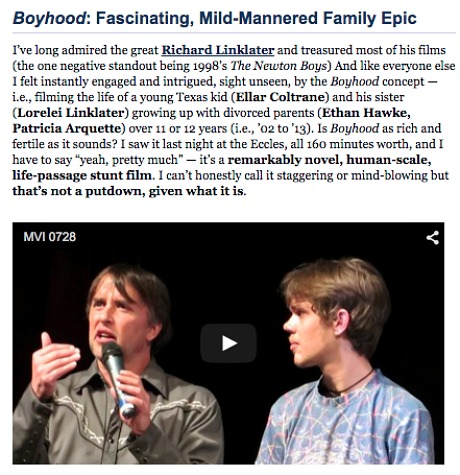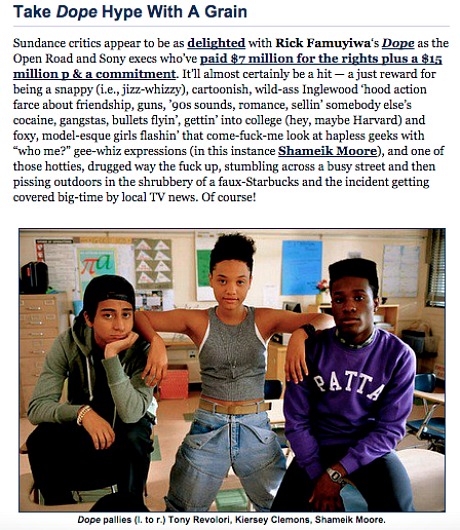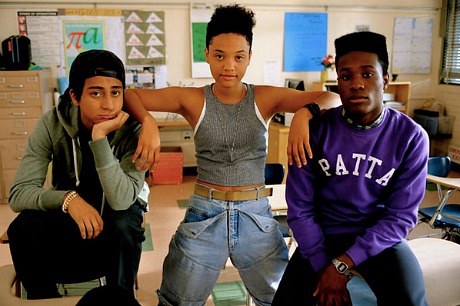Yesterday In Contention‘s Kris Tapley assessed the out-of-the-blue Birdman surge and the apparently strong likelihood that Alejandro G. Innaritu‘s film has the Best Picture Oscar in the bag. It’s an astute piece but some assertions/observations need addressing.

Assertion #1: “No one was really expecting this of Birdman, and boom, there it is.” True — I had been urging people to vote for Birdman all along but I wasn’t expecting a PGA or SAG win. I had more or less wilted and accepted the Boyhood-is-all-but-inevitable theology…and then lo and behold!
Assertion #2: “I’ve always sensed some softness in the Boyhood steamroller.” Indeed — it’s been soft all along. I sensed that softness as I watched and absorbed Boyhood at the 2014 Sundance Film Festival, but tea-leaf readers kept insisting it had the Best Picture goods, and after a while most of us started to think, “Hmmm, yeah, maybe it does…okay, fine.”





